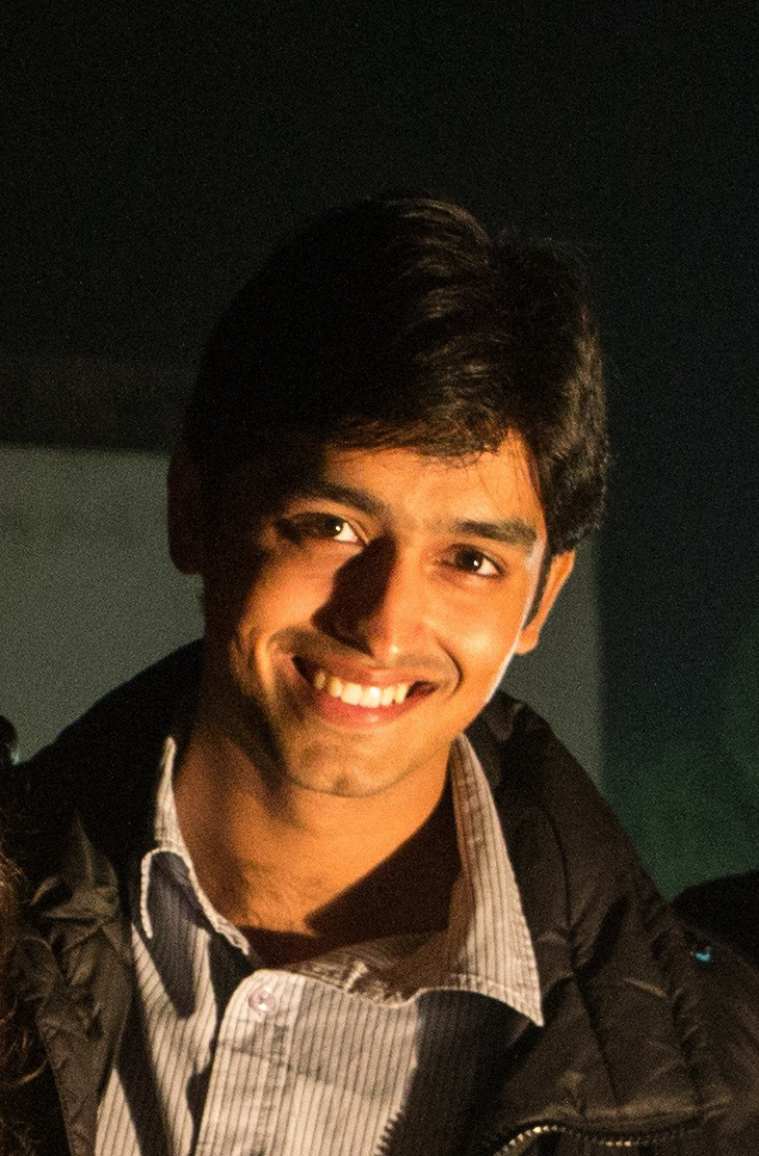- India
- International
How a film shot in general dabba shows the forgotten India
Samarth Mahajan, who will present his latest, The Borderlands, at Cannes Film Festival’s Marche du Film this week, on his earlier documentary, The Unreserved, which is now available online.
 The Unreserved is a slice-of-life chamber piece. (Film still)
The Unreserved is a slice-of-life chamber piece. (Film still)
I have now been in India for over two years and a half after my return from South Africa. Over one quarter of that time I have passed on the Indian trains travelling third class by choice. I have travelled up north as far as Lahore, down south up to Tranquebar, and from Karachi to Calcutta — wrote Mahatma Gandhi in his essay “Third Class in Indian Railways” in 1917, one that inspired filmmaker Samarth Mahajan to undertake a similar journey for “studying the conditions under which this class of passengers travel” – standing tiptoed with no breathing space, sleeping perched on bags or in makeshift hammocks.
“When I started researching for past work on general compartments, I could only find some videos of foreigners travelling in sleeper class and calling it third class. It seemed like a nice idea, since no one had done it. Moreover, nothing about it has changed over the past 100 years. The idea became clear that it had to be about the people” says Mahajan, 29, about his second documentary, now available on YouTube, after being aired on EPIC channel for two years. This week, he is pitching his third, the work-in-progress The Borderlands, at Cannes’ Film Festival’s Marche du Film to global distributors.
Unhappy with his cushy Kolkata FMCG job, the IIT-Kharagpur graduate shifted base to Mumbai, where he met his batchmate Ashay Gangwar, who runs his production company Camera and Shorts, and together they embarked upon a journey to tell stories of the people, by the people. Gangwar poetically handled the cinematography for Mahajan’s first, Kazwa – A Million Lanterns, a short documentary on fireflies – shot in Purushwadi, Maharashtra, where after the first rains, millions of fireflies come out.
Camera and Shorts produced The Unreserved, the idea for which came from another rail travel. Mahajan had undertaken a pan-India 15-day train journey, Jagriti Yatra, for budding social entrepreneurs – covering 8,000 km in sleeper class across India. It took him to villages, making him meet people from the NGO sector, while also opening up a whole new world that he wanted to capture on camera.
 Samarth Mahajan, an IIT-Kharagpur graduate shifted base to Mumbai, where he met his batchmate Ashay Gangwar.
Samarth Mahajan, an IIT-Kharagpur graduate shifted base to Mumbai, where he met his batchmate Ashay Gangwar.
The world recently witnessed migrant workers walking back to their villages, on empty stomach and blistered feet, the rail tracks that led home became funeral pyres. “The country gave just four hours to the lockdown; it was a thoughtless decision. The poor, jobless migrants were being charged for their tickets. The governments have been classist for long; the level of apathy we have is heartbreaking,” says Mahajan, who hails from Punjab’s Dinanagar, near India-Pakistan border. “I knew my films had to be about travel and people.”
To peer into the world of those who travel by train unreserved. A world comprising migrants – workers, daily wagers, students, families — and their battles, aspirations, emotions, and opinion. So, the three-member crew of Mahajan, Omkar Divekar (cinematographer) and Rajat Bhargava (assistant director) set on a 17-day journey, on 10 trains, and 265 hours, to the extreme rail points: from Okha to Baramulla to Dibrugarh to Kanyakumari to shoot the film that won the 65th National Award for Best On-Location Sounds.
Getting permissions was expensive – “Rs 3-4 lakh as security deposit, and Rs 1 lakh per day to shoot in the coaches”. So, with AC-3 tickets, they sneaked into the General bogie, “it was a risk worth taking. We knew no one will come to the general dabba to check,” says Mahajan.
ALSO READ | In his latest film, Kireet Khurana presents telling tales of India’s poor and homeless
Keeping the documentary company is Indian Ocean’s Leaving Home track. Mahajan wrote to the band to get permission to use the track for “it perfectly fit the storyline”, like they had earlier written to violinist Karthick Iyer for his first, Kazwa.
The Unreserved is a slice-of-life chamber piece. We see familiar landscapes and cityscapes outside the window, while the inside surveys a class of people, “an India we have stopped engaging with”. There are women: one, her face swollen, escaping her abusive drunkard husband. Another, a mother of two daughters talks about her worry of passing down diabetes to her child — “preferably a son” — when she conceives. A girl who had to give up her “doctor dream” and settle for nursing, she awaits a job to get married but can’t marry the person she likes owing to caste. There’s a transgender person, too, on a southbound train, who is a computer science student and – quite cliched — a huge Rajanikanth fan.
There are migrant workers: Twin brothers who work in a Kerala eatery. A young nanny returning home. A father, a daily-wage mason, going to the city to find work to pay off the Rs 3 lakh debt taken for his 14-year-old daughter’s brain-tumour surgery.
 The idea for which came from another rail travel. Mahajan had undertaken a pan-India 15-day train journey. (Film still)
The idea for which came from another rail travel. Mahajan had undertaken a pan-India 15-day train journey. (Film still)
Conversations political are carried out with nonchalance. Two young Muslim men discuss India’s missile man – APJ Abdul Kalam and the making of Majid Majidi’s film Muhammad: The Messenger of God (2015). A young man says girls in Haryana are unwanted because their wedding (plus, dowry) is an expensive affair. A senior citizen speaks of how caste-based reservation was important back in the day – not anymore. “They live in cities and ask for reservation. Reservation should be on the basis of a person’s job/ unemployment/backward status, for the poorest.”
Kashmir was an impromptu decision. The crew was in luck to find three friends who bunked college and showed them around in Baramulla. A 19-year-old boy, in the film, says how at his home there’s always an India-Pakistan match, his brother is in the Army, while he has no job, no electricity. That if the Indian government gives him a job, maybe he will start liking India. He’s neither been to Pakistan, nor to the rest of India. “He is frustrated with his situation. From the outside, we only see binaries and violence. But if depoliticised, it would become all about very basic needs. Talking to him gave me a new perspective on Kashmir,” he says. And that led him, conceptually, to his new film The Borderlands – to explore life beyond the domain of violence and politics along India’s borders.
ALSO READ | Tastes like home: Axone examines the biases people from the Northeast face in the rest of India
“At this point in India, we need to hear stories of people from the grassroots. A lot of us live in delusion. We can’t imagine the invisibility or marginalisation. We need to spend time outside. You and your friends are not the society. Perhaps, take a walk through a slum (not Dharavi’s poverty tourism), or send metro children to villages via NGOs instead of sending them to MUNs (model United Nations) abroad,” he says, or, as the film ends with Gandhi’s quote, “Let people…who generally travel in superior classes, without previous warning, go through the experiences now and then of third-class travelling.”
Buzzing Now
Jun 01: Latest News
- 01
- 02
- 03
- 04
- 05




